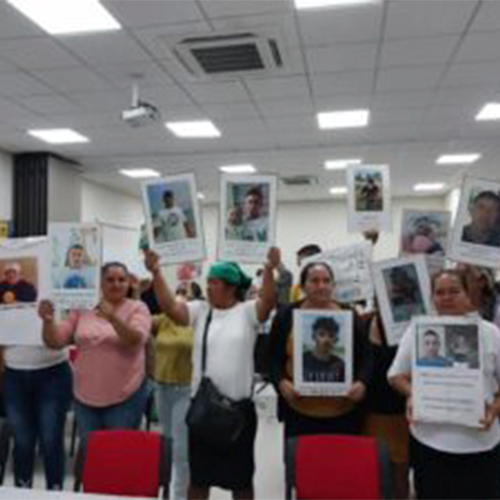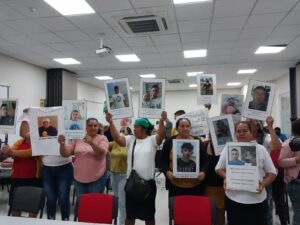
Communities of Usulután and Cristosal denounce the Salvadoran state for human rights violations during state of exception.
By alejandra sandoval

Cristosal, on behalf of 66 victims from organized communities in Usulután, El Salvador, filed a complaint against the Salvadoran State before the IACHR for systematic human rights violations during the state of exception.
According to the complaint, all of the detentions were arbitrary, with no motive or prior police, prosecutorial or judicial order. The detainees were sent immediately to prisons in which they were placed with both convicted prisoners and those awaiting trial. The families did not receive information on the detainees’ whereabouts, state of health or legal situation, and the detainees did not have access to their families or defense counsel. It is unknown whether the detainees suffered cruel, inhuman, degrading treatment or torture.
The detainees were brought before a judge after 15 days, and most of them were accused of belonging to gangs or collaborating with them. During the initial hearing, the detainees were not allowed to communicate with their attorneys and were held with dozens or hundreds of other detainees without the right to be heard.
Prior to the complaint before the IACHR, habeas corpus petitions have been filed in the Constitutional Chamber on behalf of the victims, but none have been admitted or resolved to date, except with provisos and in some cases were ruled inadmissible.
Cristosal and the families of the victims request the IACHR to ask the Salvadoran State:
- To take measures to protect the life and integrity of the victims during their time in detention, as well as to guarantee access to adequate medical care.
- To allow access to legal representatives and family members, as well as to inform them about their health and legal situation.
- To take measures to reduce overcrowding and to report on the actions taken. All of this must be in agreement with the affected persons and their representatives.
